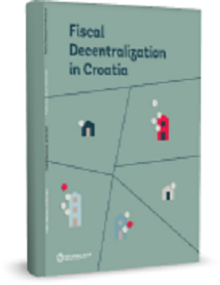As a centralized country with significant administrative fragmentation, Croatia has been making continuous efforts toward fiscal decentralization. The country’s current administrative structure has had divergent effects on local and regional financing, as well as on the efficient delivery of local public goods and services. The COVID-19 pandemic has exacerbated the disparities between levels of government, tightening revenue streams for many local and regional government units. Despite these challenges, Croatia is striving to achieve self-sustainable local and regional government, able to provide citizens with a robust set of high-quality public goods and services.
A renewed focus on fiscal decentralization and subnational government empowerment could lead to more balanced regional development, increased representation, improvement in the quality of local goods and services, and, consequently, greater confidence in and satisfaction with public administration.

This report can serve as a vehicle for greater collaboration in addressing the challenges of Croatia’s fiscal decentralization system and creating opportunities for reforms in support of fiscal decentralization and more effective financing of subnational governments.
The report is also available in Croatian.
